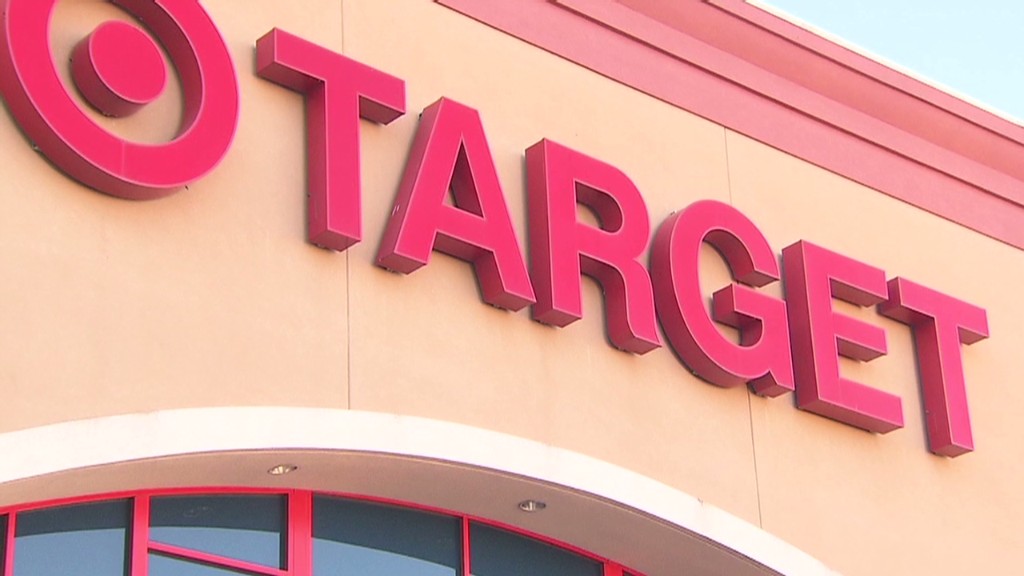
Millions of consumers are being sent new credit and debit cards in the wake of the recent security breach that hit as many as 110 million Target customers.
JPMorgan Chase (JPM) announced Tuesday that it is replacing 2 million credit and debit cards due to the hack. Other major issuers haven't released the number of cards they're replacing, but did confirm they are sending new cards to certain customers.
Bank of America (BAC) and Wells Fargo (WFC) both said they are reissuing cards that they believe are "at risk of" fraud, while American Express (AXP) said it has replaced "a small number" of cards -- mostly at the request of customers. "Card replacement is not something we typically do in large numbers, as we feel it can inconvenience customers," spokeswoman Marina Norville said.
Citibank (C) confirmed Thursday that it is replacing debit cards affected by the Target hack.
Related: JPMorgan replaces 2 million cards after Target hack
And it is an inconvenience, since it means updating your card information everywhere it is currently stored. But here are some tips to make the transition as painless as possible:
Recurring payments
Even before getting your new card, take a look at your last couple of statements and make a list of any recurring payments that were made -- like utilities, gym memberships, student loans or cell phone bills. That way, you know what information you'll need to update when your card arrives. Otherwise, your next monthly transaction might be denied and you could end up being late on payments.

Online shopping
Next, think about all of the places where your credit or debit card information may be stored online. That includes Amazon, Paypal, eBay, airline websites, daily deal sites like Groupon, and many others. Unlike recurring payments, this information doesn't have to be updated right away -- so it may be easier to update as you use each site.
And if you used your card at Target between Nov. 27 and Dec. 15, contact your issuer to request a new card immediately instead of waiting around wondering if a new one will arrive in the mail, advises John Ulzheimer, credit expert at CreditSesame.com.
Related: Target hack is mostly harmless for consumers
"I would make the assumption your card is going to be reissued at some point and be proactive... [so] you're on your own timeline instead of the bank's timeline," he said.
The good news
If you're getting a new debit card, don't worry about updating direct deposit information or requesting new checks. Only the debit card number should change when the card is reissued -- not your checking account number.
And while transitioning to a new card is a hassle, at least you're not losing money -- and it's better than dealing with fraudulent charges on an account or getting your identity stolen.
"The good news is that you're not going to be liable for anything -- so it's an inconvenience but not a financial issue," said Ulzheimer.
